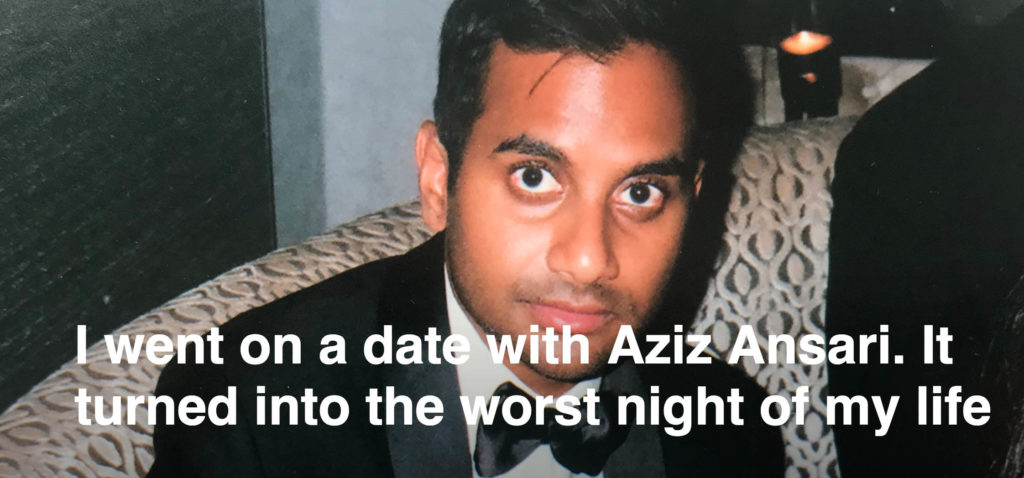Aziz Ansari’s Likability Factor Serves As A Shield Against #MeToo Movement
 Photo Credit: Babe.net
Photo Credit: Babe.net
Or maybe it’s because the story appeared on Babe.net and the central victim was a non-celeb chick?
By now I’m sure most of you probably have opinions about the Aziz Ansari drama playing out in the media—the latest in a long series of rich and famous dudes put in the shameful spotlight simply because they couldn’t contain their sexual urges.
Some in the elitist media camp instantly trashed the story saying it was poor journalism, while others say it serves as one of the first major blows to the #MeToo movement. I’m sorry, but the #MeToo movement won’t be derailed by a freakishly horny Asian dude! Then again, Donald Trump is our President, so anything is possible.
While the piece wasn’t exactly one you’d find in the New Yorker or the Times, I still feel it was done with certain level of credibility from the standpoint of the writer going the extra step and talking to multiple sources in order to corroborate statements. Plus, time and budget constraints at billion-dollar publications isn’t the same as independent websites!
With that said, the backlash against the story makes me wonder what makes one sexual misconduct accusation more credible than another. Here’s my checklist of traits that add to a favorable #MeToo movement story:
1. The story, with all it’s slimy details, will appear in one of the top national publications—i.e. NYTimes, New Yorker, LA Times, etc.
2. The main subject is a celebrity because, let’s face it, average women are way less likely to be sexually assaulted by rich and powerful men.
3. Finding multiple victims of the same perpetrator helps build a stronger case (unless of course your name is Donald Trump)
4. The perpetrator is an older male (again, unless you’re Donald Trump)
5. The perpetrator has a low likability factor (obviously younger-leaning comedians-turned actors fall into this exclusive/elusive category. And, once again, being Donald Trump helps).
6. Any others?
